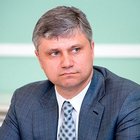Attending the meeting were more than 60 members of the organising committee, as well as cultural figures, academics, representatives of public organisations and government authorities, including the heads of 14 Russian regions invited to participate.
Minister of Culture Olga Lyubimova reported on the approval of the basic action plan for the preparation and celebration of the 200th birth anniversary of the great Russian author in 2028.
Vladimir Tolstoy, Advisor to the Head of the Presidential Office and General Director of the State Leo Tolstoy Museum, highlighted the need to supplement anniversary events with priority projects aimed at creating modern infrastructure and maximising the use of Leo Tolstoy’s creative and spiritual legacy, not only in education and enlightenment, but also as the most important element of soft power.
Chairman of the Board of Russian Railways Oleg Belozerov announced the company’s plans to renovate 15 Tolstoy-related stations and improve the accessibility of Leo Tolstoy station (formerly Astapovo, the place where the writer died in 1910), which Russian Railways will soon transform into a museum and exhibition complex.
Tula Region Governor Dmitry Milyaev also highlighted the need to enhance road and transport infrastructure to increase the accessibility of numerous Tolstoy-related landmarks and spoke about the project to expand the museum quarter in Tula.
Deputy Foreign Minister Alexander Pankin noted that the upcoming anniversary will certainly have a global reach and dimension. Leo Tolstoy made an enormous contribution to world culture, and his work had a profound impact on the development of philosophy, spiritual fundamentals and a worldview shared by millions of people across the globe. His thoughts and ideas remain in demand today, in the 21st century.
Dmitry Bak, Director of the State Museum of the History of Russian Literature, underscored the importance of creating a museum of Leo Tolstoy’s manuscripts in Moscow, to preserve and study the world’s largest and unique collection of the writer’s manuscripts and make it accessible to the public.
The participants decided to identify priorities for further work and add relevant projects to the action plan for the preparation and celebration of the 200thanniversary of Leo Tolstoy’s birth.



